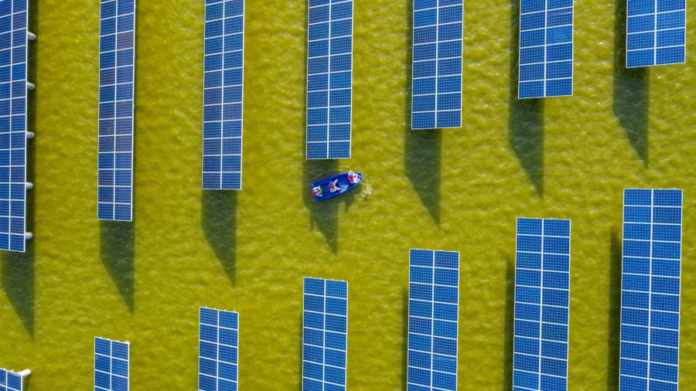So far, 2022 has not been a great year for the emerging economies of Asia. The immediate challenges of a strong dollar, rising interest rates and inflation in everything from food to fuel all show little sign of abating.
Now a further complicating factor has emerged — from an unlikely source.
The Inflation Reduction Act signed into law in August by President Joe Biden contained a sweeping climate initiative. It commits more than $369bn to subsidies and tax credits over a decade to encourage decarbonisation and cleaner energy.
As a clear positive commitment by the US to carbon reduction and cleaner energy, this is very much a global good. But there is one unintended consequence — its impact on the climate change efforts of developing countries.
Analysts and executives in some emerging markets such as India fear that one effect of the new law will be to raise the cost of renewable energy for them, making coal a more attractive alternative.
“By handing out subsidies, the effect of this act may well be to distort the entire renewable energy supply chain,” says Mahesh Kolli, president and joint managing director at Greenko Group, a Hyderabad-based renewable energy firm.
For example, he says suppliers of solar panels will be able to bill US customers far more than the price at which India imports panels. This means the price of solar panels will rise for developing countries, hindering a switch to renewable energy.
“Taxpayers in the US (and Europe) are handicapping India and other emerging markets. Solar has never been reliable but in the past it was cheap. Now the incentive is to go back to coal,” says Kolli.
In addition, some industry experts point out that the new US measures — particularly in solar power — are all about ramping up domestic production over time. The US wants to reduce global dependence on China for everything from batteries to the innards of the clean energy infrastructure, by giving both US firms and global firms an incentive to produce in the US.
Today, for example, China has a more than 80 per cent global market share for solar panels, according to data from JPMorgan. The bank also says China accounts for 10 out of the top 15 wind turbine producers, with a total market share of about 55 per cent.
One executive at a top Asian investor said: “It is America first protectionism.” And if China sent more of its production away from the US, that might affect other countries such as Malaysia, another major source of solar panels.
To be sure, though, the US legislation will have differing impacts across Asia.
In South Korea, there has been anger over the impact of the bill’s move to eliminate subsidies for electric vehicles assembled outside North America. It is feared that Hyundai and its electric vehicles will be at a disadvantage until the company begins production at a $5.5bn plant in the US state of Georgia in 2025. But South Korean producers of batteries with a presence in the US will benefit from subsidies there and likely increased demand.
For some in countries like India, though, it is another example of how the burdens of climate change fall unevenly. Many countries such as Pakistan, India and Bangladesh have less ability and fewer resources to build resilience against global warming.
India is looking ahead to when it takes over leadership of the G20 in mid-November. It is already positioning itself as the face of those emerging nations which believe it is developed countries that have been responsible for climate change, while the burden of reversing the harm falls largely on them.
“A shift to low-carbon technologies can be successful only if developing countries have access to resources, including finance, on concessional terms,” said Anantha Nageswaran, chief economic adviser to the Indian government, in a co-authored column in the Mint newspaper.
He said developing countries need support in meeting the transition costs of moving towards less carbon-intensive production in a shorter period than their developed peers.
“The role of the latter in mobilising capital at reasonable or concessional terms for enabling this transition of developing countries is a sine qua non, and, quite frankly, part of their promise made at the Earth Summit in 1992 and as part of the Paris Agreement in 2015,” he added.
The Inflation Reduction Act may be a breakthrough in the US for climate change but the burden of adjustment falls ever more heavily on many cash-strapped emerging markets.






